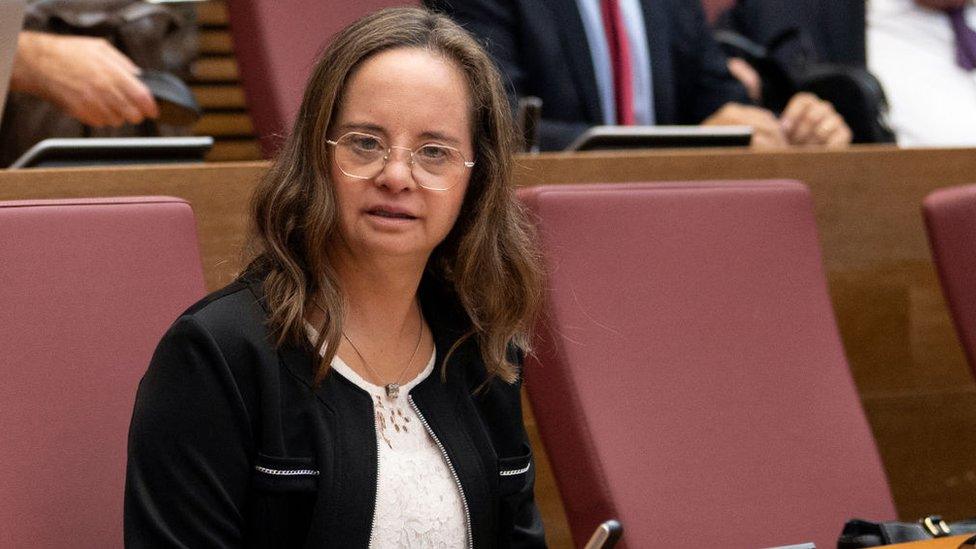Learning Disability Week: What's it all about?
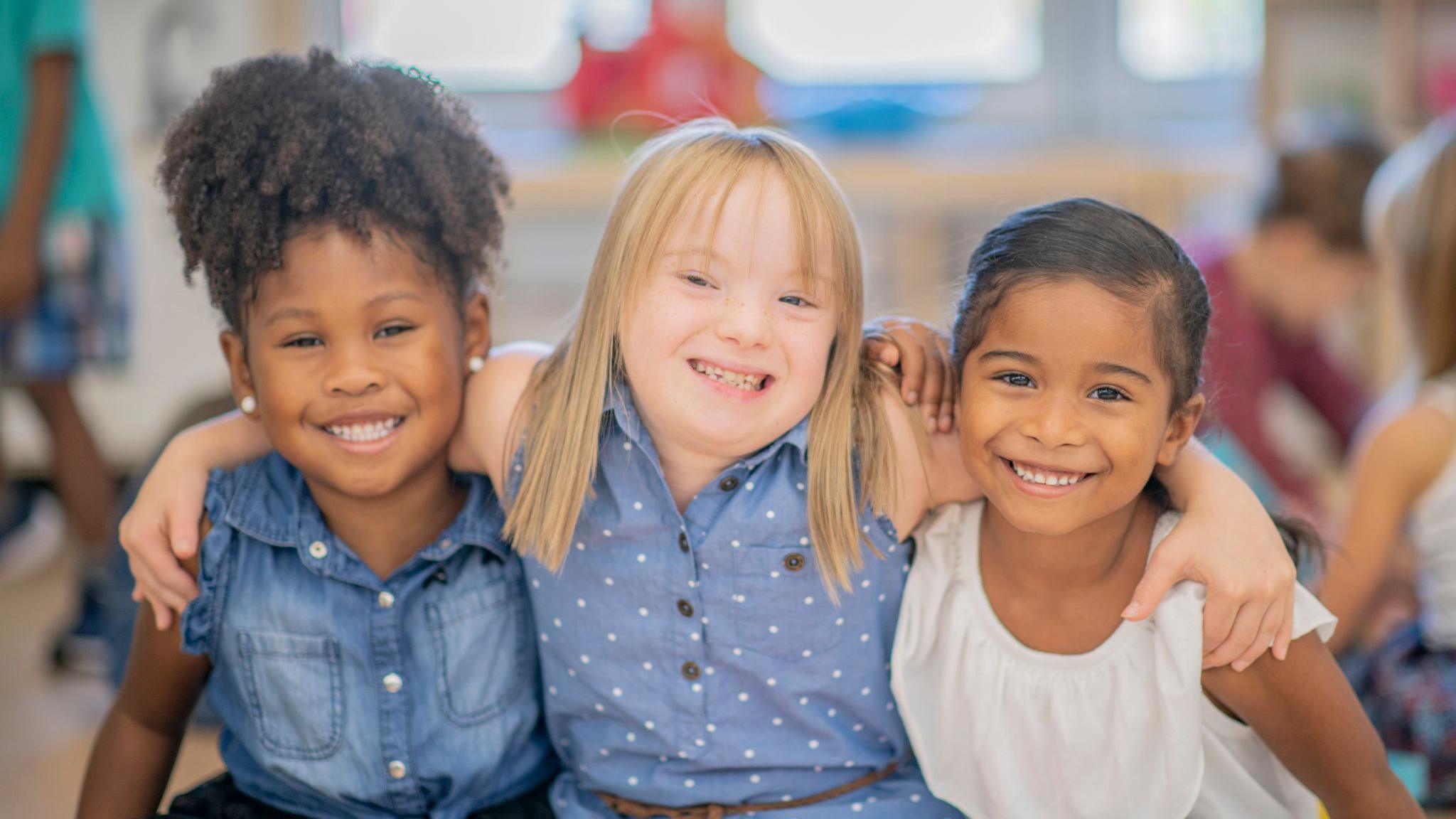
- Published
This week is Learning Disability Week.
It takes place in the third week of June every year and in 2024, it's running from the 17-23 June.
The event, organised by the charity Mencap, and is an opportunity to raise awareness about different learning disabilities, what life is like for those who have one and to also celebrate what people with learning disabilities bring to society.
This year's theme is "Do you see me?"
It's all about challenging some of the barriers people who have learning disabilities face.
More like this
Dyslexia: What is it and what are the signs you might have it?
- Published2 October 2023
What is Down syndrome?
- Published21 March 2024
Neurodiversity Celebration Week 2024: What is it?
- Published10 June 2024
What is a learning disability?
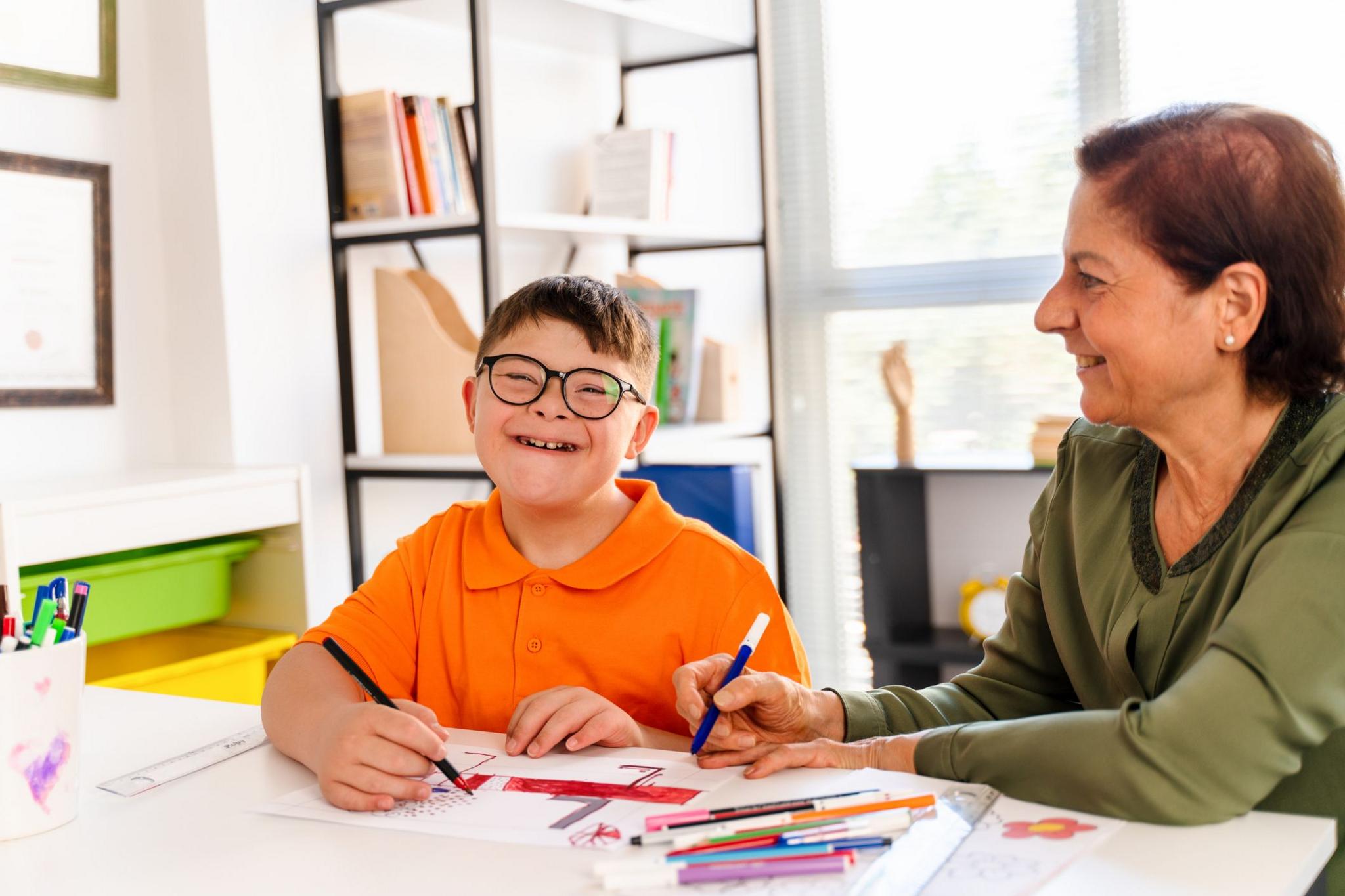
People with a learning disability may need additional support for certain activities
According to Mencap, a learning disability is a person's reduced intellectual ability, meaning they can face difficulty with everyday activities, such as household tasks, reading, socialising, working at a job or at school, and communicating - which affects someone for their whole life.
People with a learning disability can sometimes need extra support to learn new skills, understand complicated information or interact with other people.
A learning disability doesn't mean people can't live happy, fulfilling or successful lives.
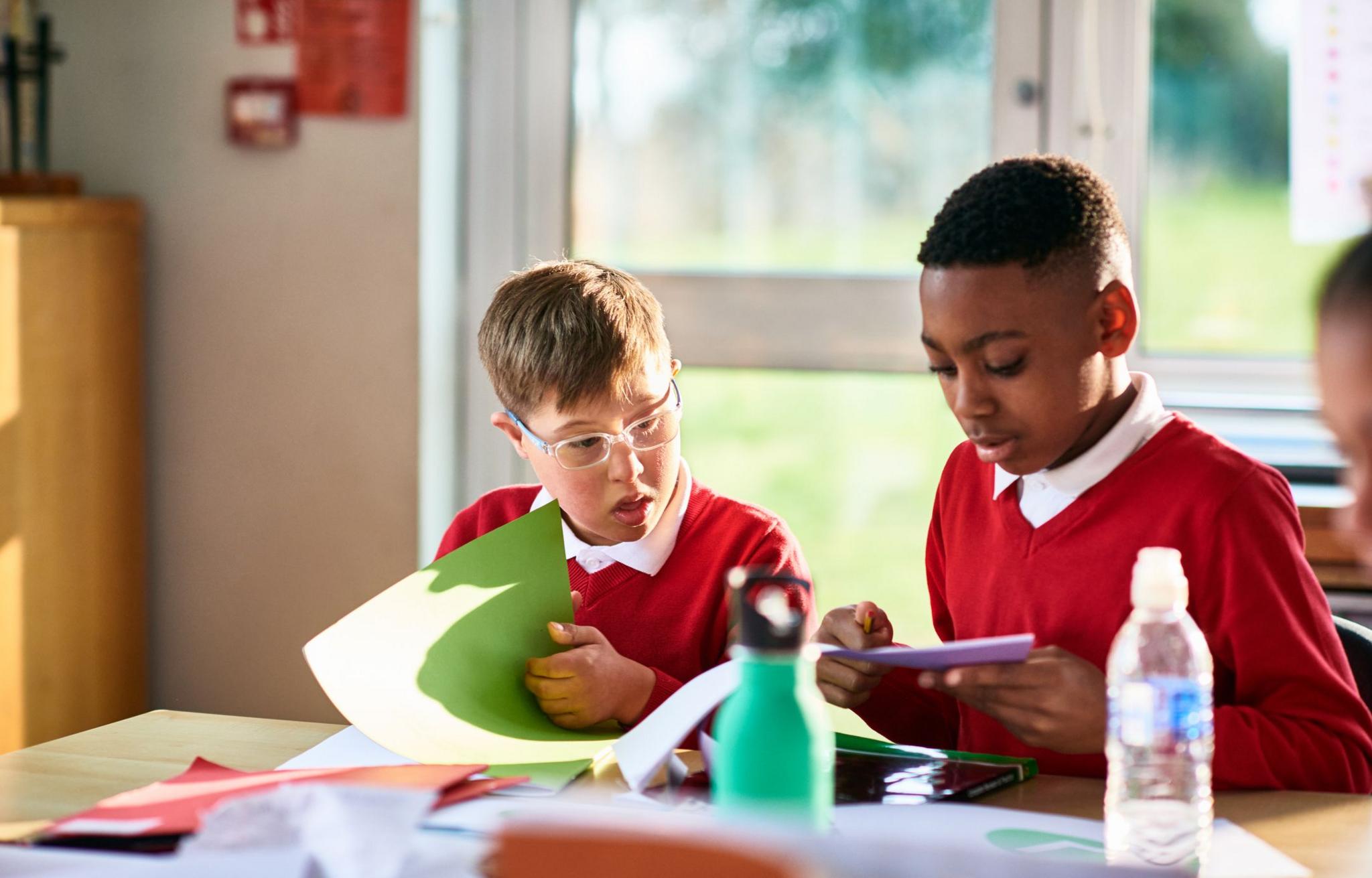
Not all learning disabilities are the same and this affects the level of support a person with one needs.
Some learning disabilities are mild, which means a person may need minimal help to do certain things.
On the other hand, some individuals may have moderate or severe learning disabilities. People with severe learning disabilities may need to be looked after full time and require assistance for all aspects of their lives. They may also have physical disabilities too.
Individuals with Down syndrome will typically have some level of learning disability, although it's important to remember that it isn't a learning disability in and of itself.
Some people with autism spectrum disorder may also have a learning disability, although this isn't always the case.
What is NOT a learning disability?
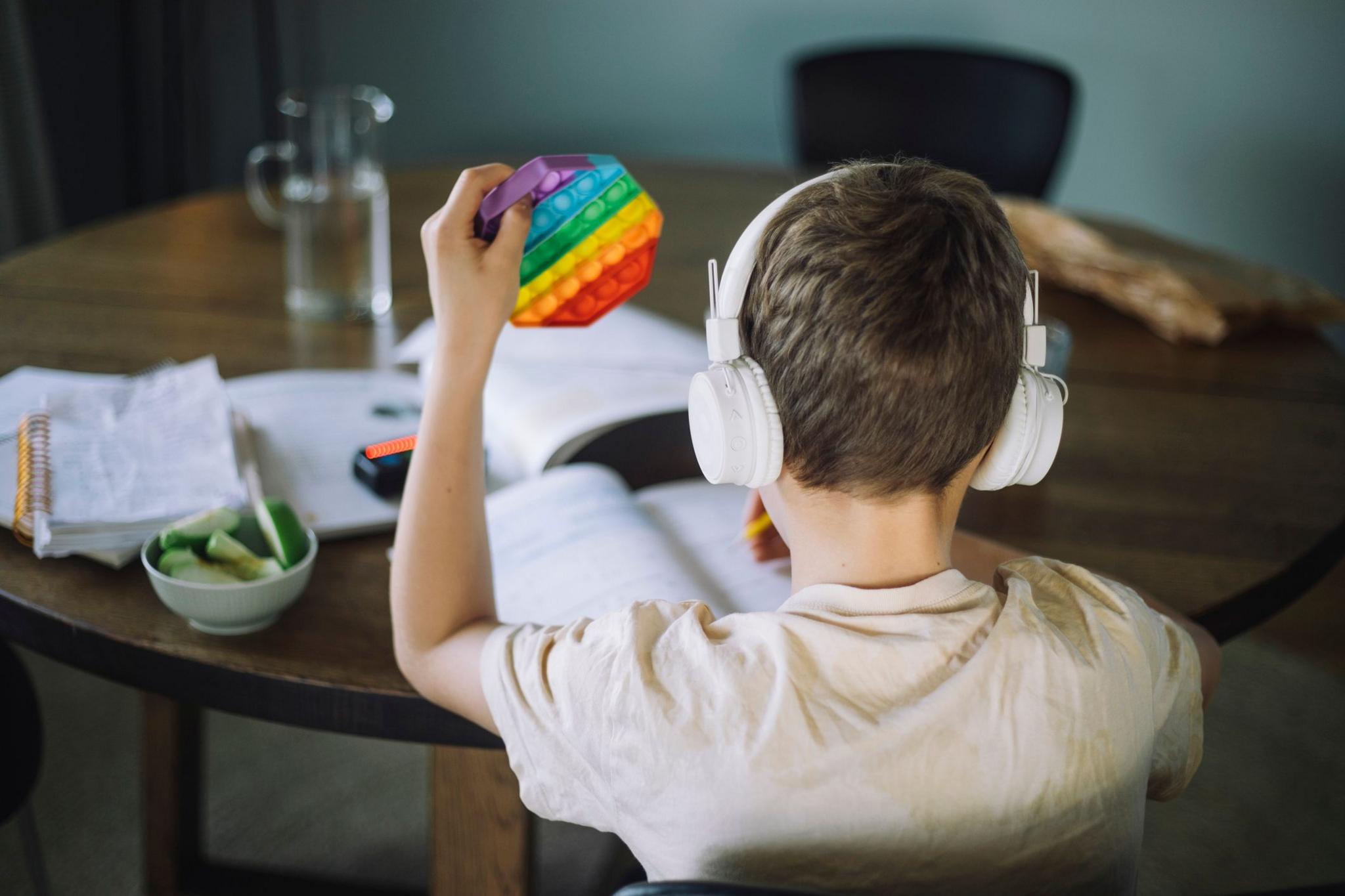
A learning disability isn't the same as a learning difficulty
Mencap says that the term 'learning disability' is often confused with 'learning difficulty', but they're actually two different things.
Unlike a learning disability, a learning difficulty doesn't affect the general intelligence of a person.
A person with a learning difficulty may face barriers or problems when it comes to processing certain types of information because of the way their brain works.
For example, someone with dyslexia has the ability to understand words and what they mean, but their learning difficulty makes it harder for them to engage with words fluently. This can affect their ability to read, write or spell.
Other examples of learning difficulties include:
dyspraxia - this affects a person's movement and co-ordination
attention deficit hyperactivity disorder (ADHD) - this affects a person's behaviour and ability to concentrate or maintain attention
dysgraphia -this affects a person's ability to write
An individual may have one or more learning difficulties and like learning disabilities, the severity isn't the same for everyone.
It's also possible for someone to have a learning disability and a learning difficulty at the same time.
What's it like living with a learning disability?
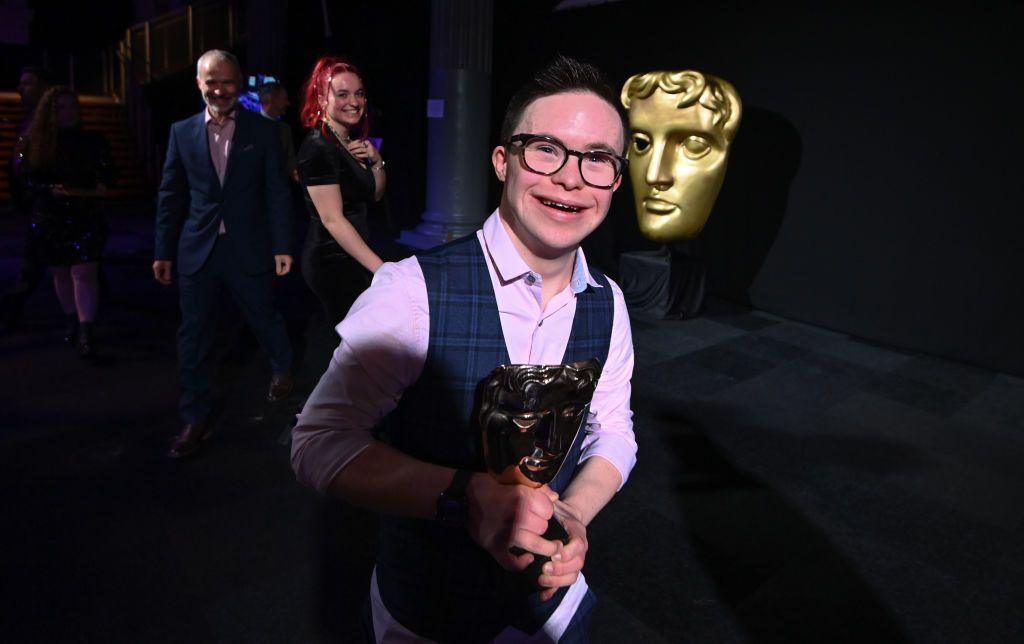
George won an award at the BAFTA Children & Young People Awards in 2022
TV presenter George Webster has a learning disability, but he hasn't let this stop him from achieving his goals.
He's the first CBeebies presenter with Downs Syndrome and is also an ambassador for Mencap.
Although George did face some difficulties at secondary school because of his learning disability, he received lots of support.
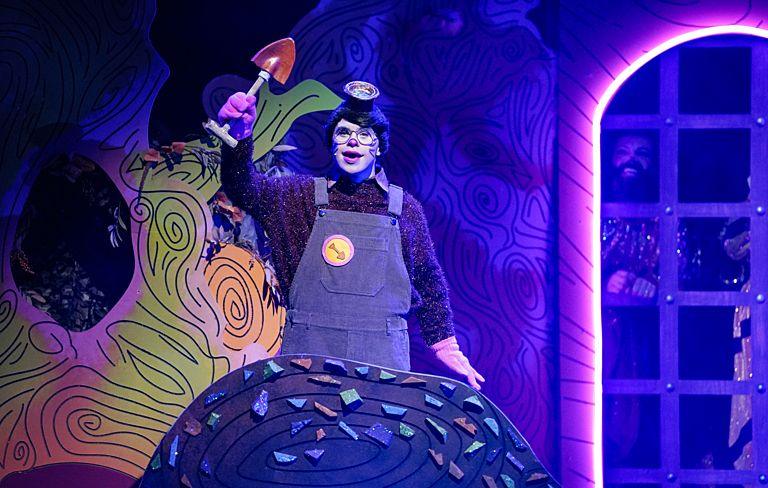
George is the first CBeebies presenter with Downs Syndrome
"I needed extra support in lessons and with exams." he told BBC Bitesize.
"Answering questions in a test was a challenge because I found it hard to keep up with the time to write down my answers so I asked for help from my SENCO (Special Educational Needs Coordinator) to give me extra time in exams which helped me with this challenge.
"The people who helped me to overcome my challenges were all my mates and the terrific staff."
Find out more
- Published1 July 2019
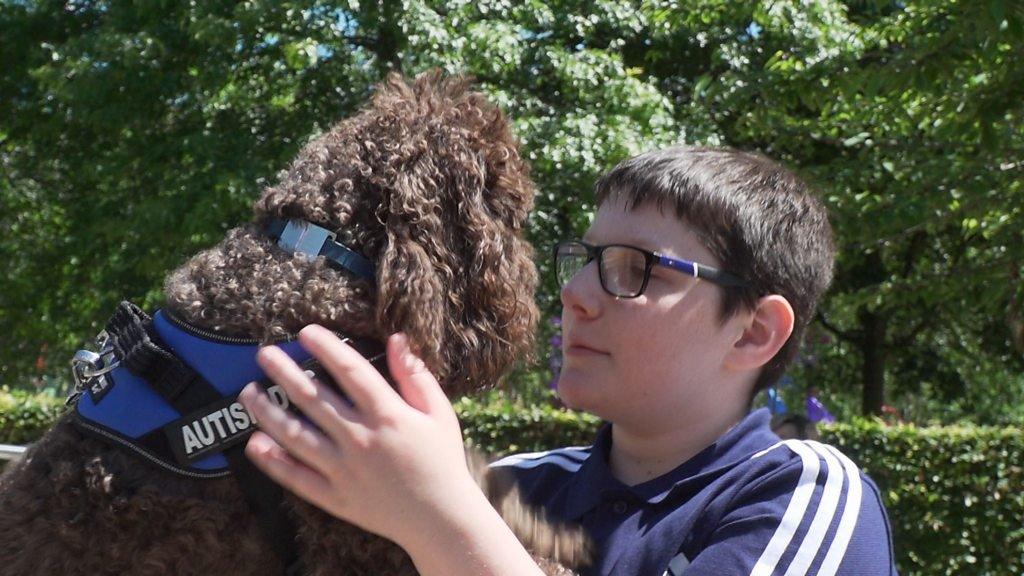
- Published21 March 2023
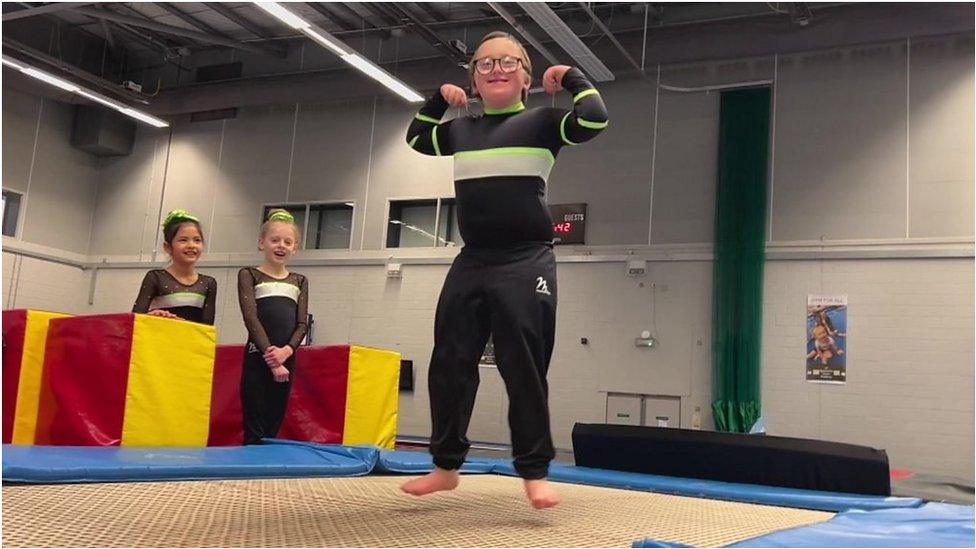
- Published17 January 2024
